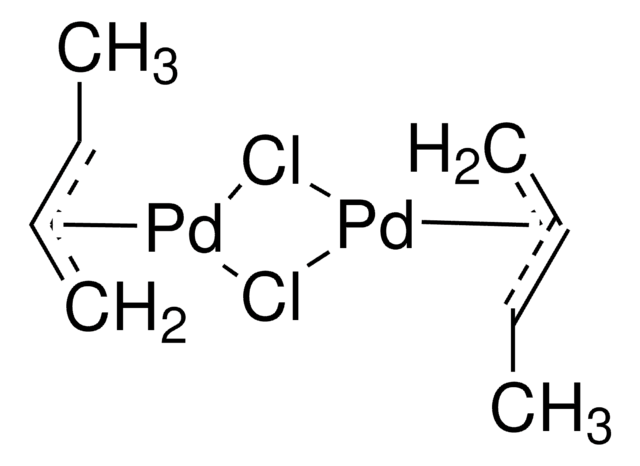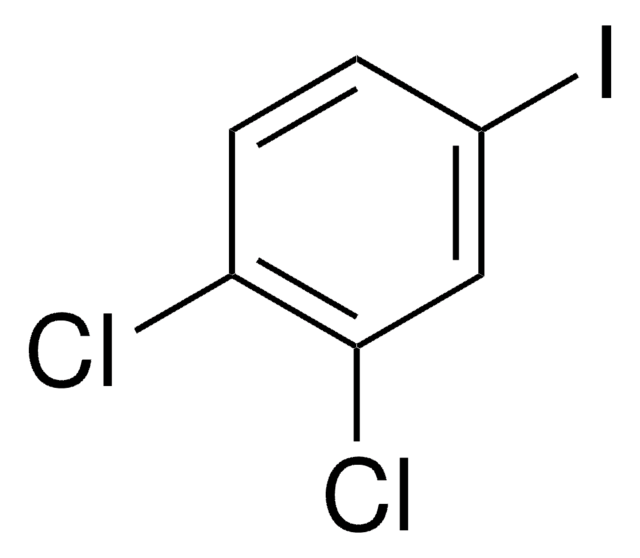673064
(2-Methylallyl)palladium(II) chloride dimer
Synonym(s):
Chloro(2-methylallyl)palladium(II) dimer, Dichlorobis(2-methylallyl)dipalladium, NSC 270885
About This Item
Recommended Products
form
solid
reaction suitability
core: palladium
reaction type: Buchwald-Hartwig Cross Coupling Reaction
reaction type: Cross Couplings
reaction type: Heck Reaction
reaction type: Hiyama Coupling
reaction type: Negishi Coupling
reaction type: Sonogashira Coupling
reaction type: Stille Coupling
reaction type: Suzuki-Miyaura Coupling
reagent type: catalyst
mp
168.2-174.0 °C
storage temp.
2-8°C
SMILES string
Cl[Pd].Cl[Pd].[CH2][C]([CH2])C.[CH2][C]([CH2])C
InChI
1S/2C4H7.2ClH.2Pd/c2*1-4(2)3;;;;/h2*1-2H2,3H3;2*1H;;/q;;;;2*+1/p-2
InChI key
XVIHZVZZPKOMRE-UHFFFAOYSA-L
Application
- Asymmetric allylic alkylation reactions
- Suzuki-Miyaura reactions
- Reductive cleavage reactions
- Reaction of alkenyloxiranes with carbon monoxide
Analysis Note
Signal Word
Warning
Hazard Statements
Precautionary Statements
Hazard Classifications
Eye Irrit. 2 - Skin Irrit. 2 - STOT SE 3
Target Organs
Respiratory system
Storage Class Code
11 - Combustible Solids
WGK
WGK 3
Flash Point(F)
Not applicable
Flash Point(C)
Not applicable
Personal Protective Equipment
Choose from one of the most recent versions:
Certificates of Analysis (COA)
Don't see the Right Version?
If you require a particular version, you can look up a specific certificate by the Lot or Batch number.
Already Own This Product?
Find documentation for the products that you have recently purchased in the Document Library.
Customers Also Viewed
Articles
Pd-catalyzed cross-coupling of silicon compounds offers an alternative in synthetic chemistry.
Our team of scientists has experience in all areas of research including Life Science, Material Science, Chemical Synthesis, Chromatography, Analytical and many others.
Contact Technical Service











